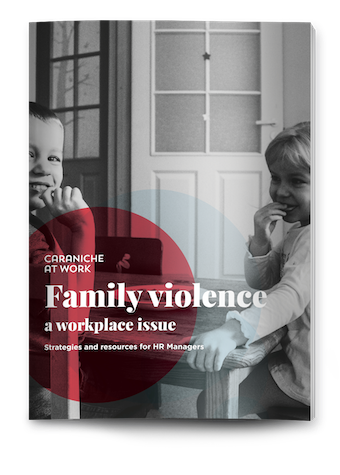
If you work in a helping profession, there’s every chance job satisfaction is high on the list of things you value about your work. It’s why many of us continue to work in challenging environments. But what makes us feel satisfied at work? How can we foster this?
There are positive and negative aspects to helping those in need in any professional context. So much so, that researchers have developed tools to measure what they define as compassion satisfaction (the good stuff) and compassion fatigue (the bad stuff).
Compassion satisfaction encompasses all the positive aspects of working as a helper, the pleasure and satisfaction you derive from helping others, as well as the positive feelings you may feel towards your colleagues or ability to contribute to the greater good of society.
Over the past 20 years, researchers have contributed to a greater understanding around the role of compassion satisfaction in keeping workers buoyant and healthy in professions that have the potential to drain them.
If you’re in a caring profession, chances are you’re a compassionate person who wants to help others. But looking after other people can take its toll on even the kindest and most caring among us. So, what makes us feel satisfied in our work and able to keep going?
The elements of compassion satisfaction
Research in the US has revealed a high potential for compassion satisfaction in mental health workers. According to researcher, Beth Hudnell Stamm, if you’re satisfied at work, you’re likely to experience aspects of the following three elements in a positive way:
What stops us feeling satisfied?
According to Safe Work Australia, workers’ psychological and physical health can be adversely affected by exposure to any factors that increase a stress response from negative workplace experiences such as:
Excessive pressure, poor leadership, lack of recognition, exposure to violent or traumatic events, remote or isolated work, high job demands, poor support and poor workplace relationships.
And as many of us know, research shows the level of control workers have over their work situation and their sense of feeling valued at work, can dramatically affect work performance and productivity, absenteeism, workplace safety and staff turnover.
So, what sort of work environments do we need to create, as managers and industry leaders, if we’re to foster a sense of satisfaction in ourselves and our colleagues when it comes to how we feel about our work?
Elements of a psychologically healthy workplace
Perhaps unsurprisingly, we do know what a psychologically healthy workplace looks like. Here are some of the characteristics we’re fairly certain all of us would like to experience in our roles at work.
Given the helping professions tend to be under-resourced, in some sectors, there’s no greater imperative to make a concerted effort to invest in building a psychologically health workplace that fosters compassion satisfaction in workers.
This seems to be the easiest way to mitigate against and minimise instances of compassion fatigue, which are perhaps, naturally likely to occur when working with challenging demographics and/or environments in an ongoing manner.
How to focus on compassion satisfaction
It can be useful to think about what compassion satisfaction looks like to you.
Within each of us, there’s an opportunity to focus on what makes us feel satisfied at work. You may gain the most pleasure from helping others, or your colleagues, it might be contributing to the broader society or feeling as if you’re living according to your values.
Here are some individual signs of compassion satisfaction to look out for in yourself.
How to increase compassion satisfaction
Reducing the risk of compassion fatigue, and as a result, increasing compassion satisfaction among workers should be a shared responsibility between the workplace and individuals. Here are some practical measures that can help foster a sense of satisfaction at work.
____
[1] Stamm, B.H. (2002). Measuring compassion satisfaction as well as fatigue: Developmental history of the compassion satisfaction and fatigue test. Figley, Charles R (ed.). Treating compassion fatigue, (pp 107- 119) New York: New York: Brunner-Routledge.

Many of the new tech based EAPs have been making inaccurate claims about traditional EAPs as part of their marketing and promotion.
Read more
Moral injury in the workplace can negatively impact our psychological wellbeing and mental health. Here’s why it matters.
Read more
When choosing how to cultivate wellness in the workplace, it’s never been more important to take an organisation-wide approach. Here’s why.
Read more
Australian workplaces are waking up to the impact of family violence. Caraniche at Work has developed a free report for HR Managers who want to take the lead.